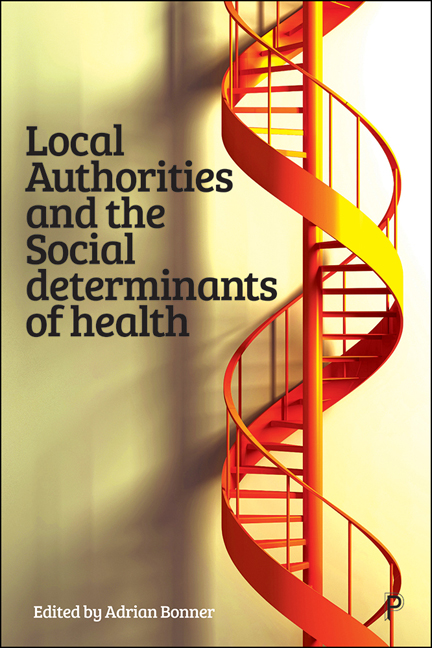Book contents
- Frontmatter
- Dedication
- Contents
- List of Figures, Tables and Boxes
- Notes on Contributors
- Acknowledgements
- Foreword
- Summary
- Introduction: Key Sociopolitical Changes Affecting the Health and Wellbeing of People
- Part I Health, Social Care and Community Wellbeing
- Part II The Role of Local Authorities in Promoting Health and Wellbeing in the Community
- Part III Local Authority Commissioning
- Part IV The Third Sector
- Part V Socio-Economic Political Perspectives
- Conclusion
- Appendix: COVID-19 Timeline
- Index
4 - Strictly Come Partnering: Are Health and Wellbeing Boards the Answer?
Published online by Cambridge University Press: 25 March 2021
- Frontmatter
- Dedication
- Contents
- List of Figures, Tables and Boxes
- Notes on Contributors
- Acknowledgements
- Foreword
- Summary
- Introduction: Key Sociopolitical Changes Affecting the Health and Wellbeing of People
- Part I Health, Social Care and Community Wellbeing
- Part II The Role of Local Authorities in Promoting Health and Wellbeing in the Community
- Part III Local Authority Commissioning
- Part IV The Third Sector
- Part V Socio-Economic Political Perspectives
- Conclusion
- Appendix: COVID-19 Timeline
- Index
Summary
Introduction
Partnership working has been a long-standing objective of health and social policy, in recognition of the reality that few policy puzzles are simple and the preserve of any single agency or government department. ‘Wicked issues’ that display complex multiple causes in search of solutions that are intersectoral require joined up approaches at both national and local levels. Despite this awareness, in practice effective joint working remains the exception rather than the rule, and governments and their agents struggle to achieve success while remaining trapped in their silos and protecting their narrow interests (Hunter and Perkins, 2014; Perkins and Hunter, 2014).
How to do partnership working differently was behind the creation of health and wellbeing boards (HWBs) at the time of the 2012 NHS changes. At the time, there was much enthusiasm for these new entities and expectations ran high. Resources were made available to support boards and to help members consider how to create effective partnerships across local government and the National Health Service (NHS).
Sadly, some eight years later, the shine has gone off HWBs despite the fact that the issues they were set up to tackle remain as visible and deep-seated as ever. Indeed, after nearly a decade of austerity, which has contributed to a sharp rise in health inequalities and entrenched the North–South divide, and with the potential fallout from Brexit around the corner with as yet unknown but almost certainly negative consequences, the need for powerful HWBs that can bring about real change to improve the lot of ravaged communities has never been greater.
A recent study (led by the author of this chapter) of HWBs in England established in 2012, when responsibility for public health transferred to local government, found that, with few exceptions, HWBs punched below their weight and were not the powerful system leaders that had been hoped for (Hunter et al, 2017). Similar findings were reported in a series of reviews conducted by Shared Intelligence in the early years of HWBs (Shared Intelligence, 2013, 2014, 2015). With the advent of sustainability and transformation programmes (STPs) and integrated care partnerships (ICPs) following the introduction in 2014 of a major programme of reform within the NHS (NHSE, 2014), an opportunity for HWBs to become key drivers for a new integrated approach with local government at its centre has largely been missed.
- Type
- Chapter
- Information
- Local Authorities and the Social Determinants of Health , pp. 67 - 82Publisher: Bristol University PressPrint publication year: 2020



